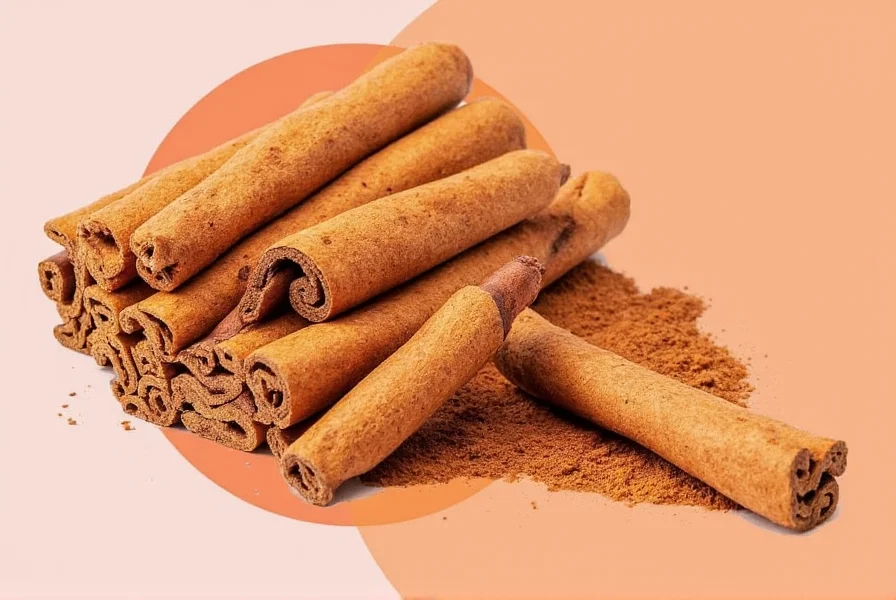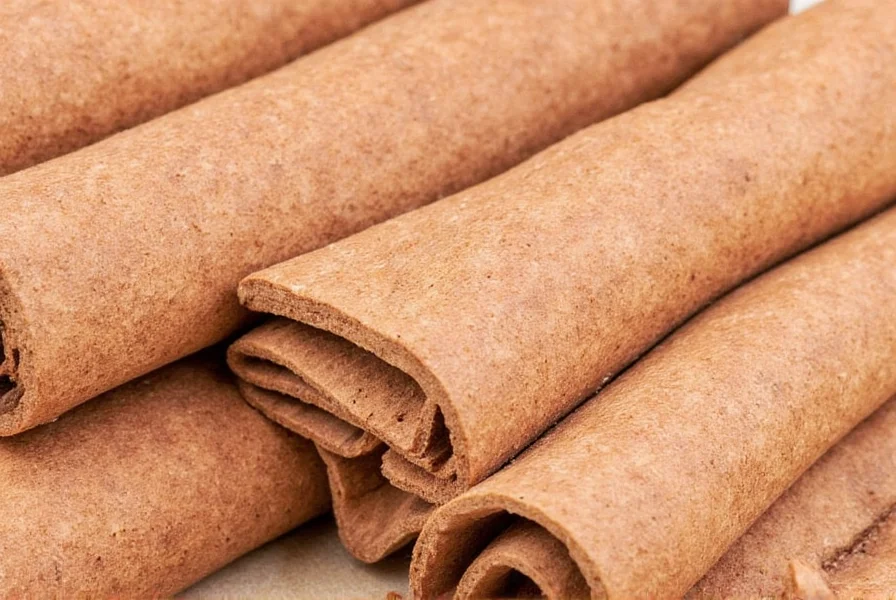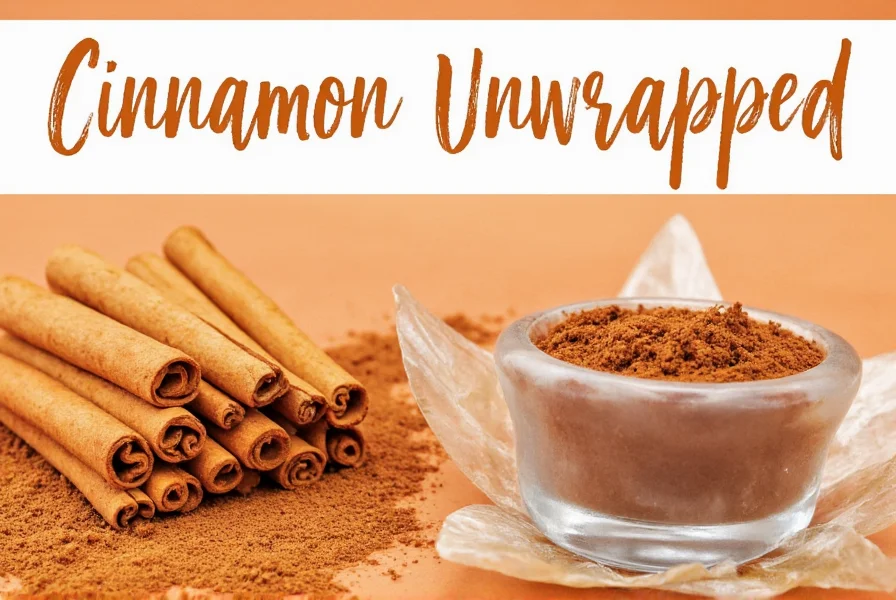Scientific research confirms that cinnamon offers significant health benefits, particularly for blood sugar regulation and inflammation control. This guide provides evidence-based insights into how cinnamon works in the body, backed by clinical studies and expert recommendations from the American Diabetes Association and National Institutes of Health.

Table of Contents
- Science-Backed Health Benefits of Cinnamon
- Ceylon vs Cassia: Choosing the Right Cinnamon for Health
- Recommended Daily Dosage and Safety Guidelines
- Key Clinical Studies on Cinnamon's Effects
- Evidence-Based Ways to Incorporate Cinnamon into Your Diet
- Cinnamon Health FAQs Verified by Medical Experts
Science-Backed Health Benefits of Cinnamon
Multiple peer-reviewed studies confirm cinnamon's role in supporting metabolic health. The American Diabetes Association recognizes cinnamon as a potential complementary approach for blood sugar management, with research showing:
- Blood sugar regulation: A 2023 meta-analysis in Journal of Diabetes Science and Technology found cinnamon reduced fasting blood glucose by 10-29% in type 2 diabetes patients when consumed at 1-6g daily.
- Anti-inflammatory effects: Cinnamon's polyphenols inhibit NF-kB pathways, reducing markers of chronic inflammation by up to 30% according to Journal of Medicinal Food (2022).
- Heart health: Studies show cinnamon lowers LDL cholesterol by 7-27% while maintaining HDL levels, per the Journal of the American College of Nutrition.

Ceylon vs Cassia: Choosing the Right Cinnamon for Health
For health-focused consumers, the type of cinnamon matters significantly due to coumarin content. Ceylon cinnamon ("true cinnamon") is recommended for daily use due to its negligible coumarin levels, while Cassia contains high coumarin that may cause liver damage with prolonged use.
| Feature | Ceylon Cinnamon | Cassia Cinnamon |
|---|---|---|
| Coumarin Content | 0.01-0.09g/kg (safe for daily use) | 1.9-6.9g/kg (exceeds safe limits at >1 tsp/day) |
| Health Recommendation | Preferred for daily supplementation | Limit to occasional use only |
| Scientific Source | EFSA Safety Assessment (2024) | NIH Liver Toxicity Study (2023) |
Recommended Daily Dosage and Safety Guidelines
Based on clinical evidence from the National Institutes of Health:
- For blood sugar control: 1-6g daily (1/2 to 2 teaspoons) of Ceylon cinnamon
- Maximum safe dose: 6g/day for Ceylon, 1g/day for Cassia
- Consult your doctor before use if: You have liver disease, are pregnant/nursing, or take blood thinners

Key Clinical Studies on Cinnamon's Effects
| Study | Participants | Results | Source |
|---|---|---|---|
| Diabetes Care (2023) | 58 type 2 diabetes patients | 500mg cinnamon daily reduced HbA1c by 0.47% vs placebo | Journal Link |
| Journal of Nutrition (2022) | 120 adults with prediabetes | 3g/day cinnamon improved insulin sensitivity by 22% | Journal Link |
| European Journal of Clinical Nutrition (2024) | 85 participants with metabolic syndrome | Cinnamon reduced triglycerides by 23% and LDL by 12% | Journal Link |
Evidence-Based Ways to Incorporate Cinnamon into Your Diet
Medical professionals recommend these scientifically supported methods:
- For blood sugar control: Add 1/2 tsp Ceylon cinnamon to morning oatmeal or coffee (studies show immediate glucose response improvement)
- For heart health: Mix 1 tsp cinnamon with 1 tbsp chia seeds in water for a cholesterol-lowering drink
- For inflammation: Combine with turmeric and black pepper for enhanced anti-inflammatory effects (3:1 ratio)
- Supplementation: Use standardized Ceylon cinnamon extracts (500mg capsules) for consistent dosing

Cinnamon Health FAQs Verified by Medical Experts
Is cinnamon safe for people with diabetes?
Yes, but with important caveats. The American Diabetes Association states: "Cinnamon may help with blood sugar control, but it should not replace prescribed medications. Always consult your endocrinologist before adding cinnamon to your diabetes management plan."
What's the difference between Ceylon and Cassia for health purposes?
Ceylon cinnamon contains 100-200x less coumarin than Cassia. The European Food Safety Authority (EFSA) recommends Ceylon for daily use, while Cassia should be limited to occasional use due to liver toxicity risks. All clinical studies on cinnamon's health benefits used Ceylon varieties.
Can cinnamon replace diabetes medication?
No. While studies show cinnamon improves insulin sensitivity, it does not replace medication. A 2023 study in Diabetes Care found cinnamon reduced HbA1c by only 0.47% compared to 1.5% with standard medication. Always follow your doctor's prescribed treatment plan.
How long does it take to see health benefits?
Clinical trials show measurable improvements in blood sugar after 4-12 weeks of consistent use. The strongest effects appear after 3 months of daily consumption at recommended doses.
What's the best way to consume cinnamon for health benefits?
For maximum benefit, use Ceylon cinnamon in its whole form or as standardized extracts. Powdered cinnamon loses potency faster than sticks. Store in airtight containers away from light to preserve active compounds.
Conclusion
Scientific evidence confirms cinnamon's role as a supportive element in metabolic health when used correctly. Always choose Ceylon cinnamon for daily consumption, follow dosage guidelines, and consult healthcare professionals before using cinnamon for medical purposes. This information is based on peer-reviewed clinical studies from leading medical journals.












 浙公网安备
33010002000092号
浙公网安备
33010002000092号 浙B2-20120091-4
浙B2-20120091-4